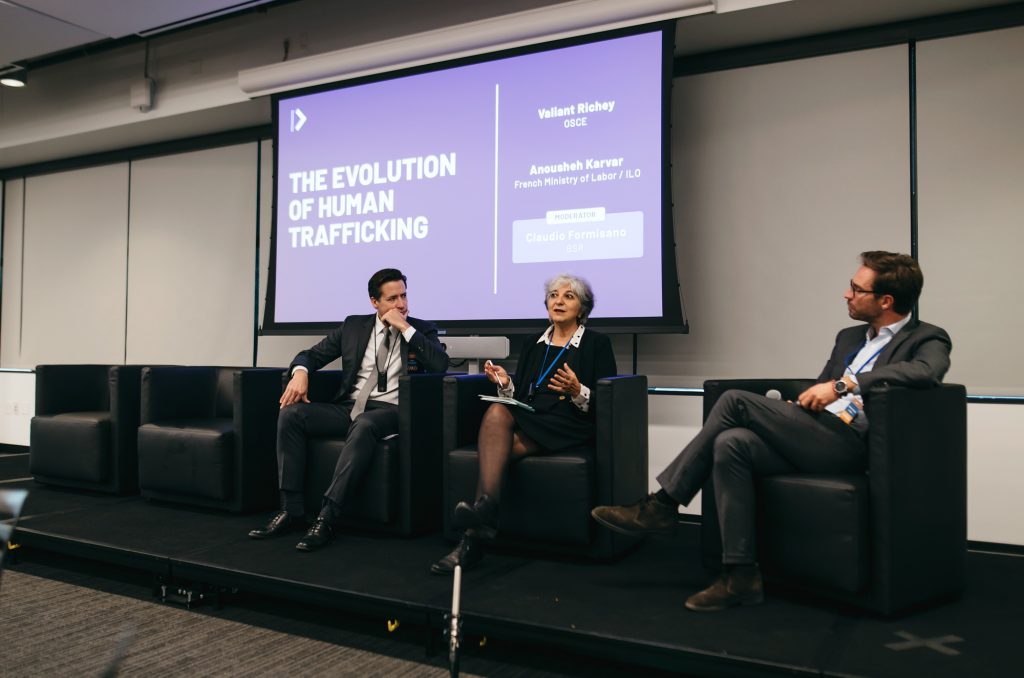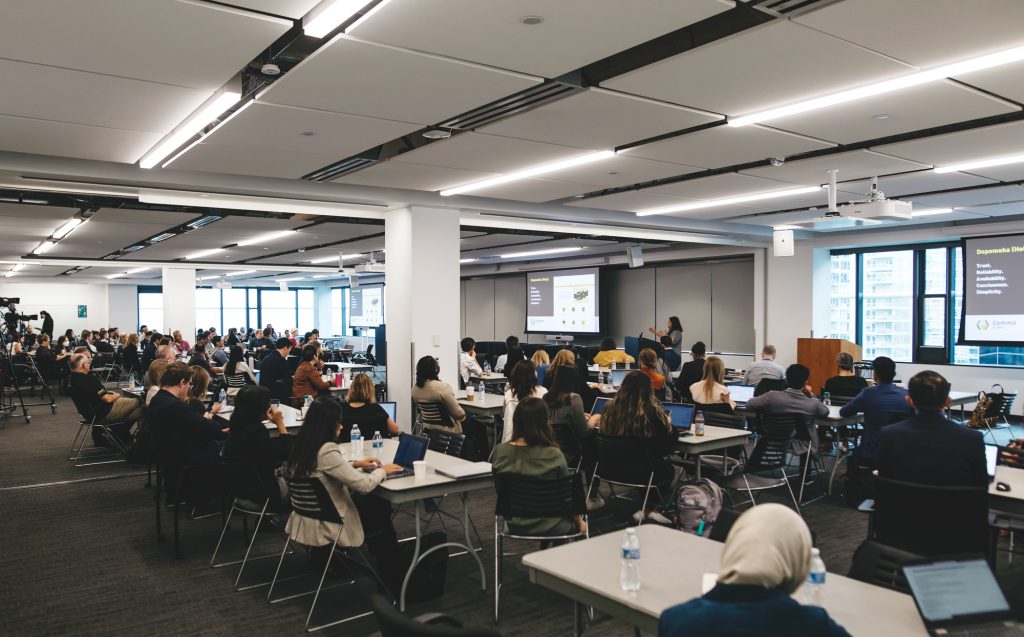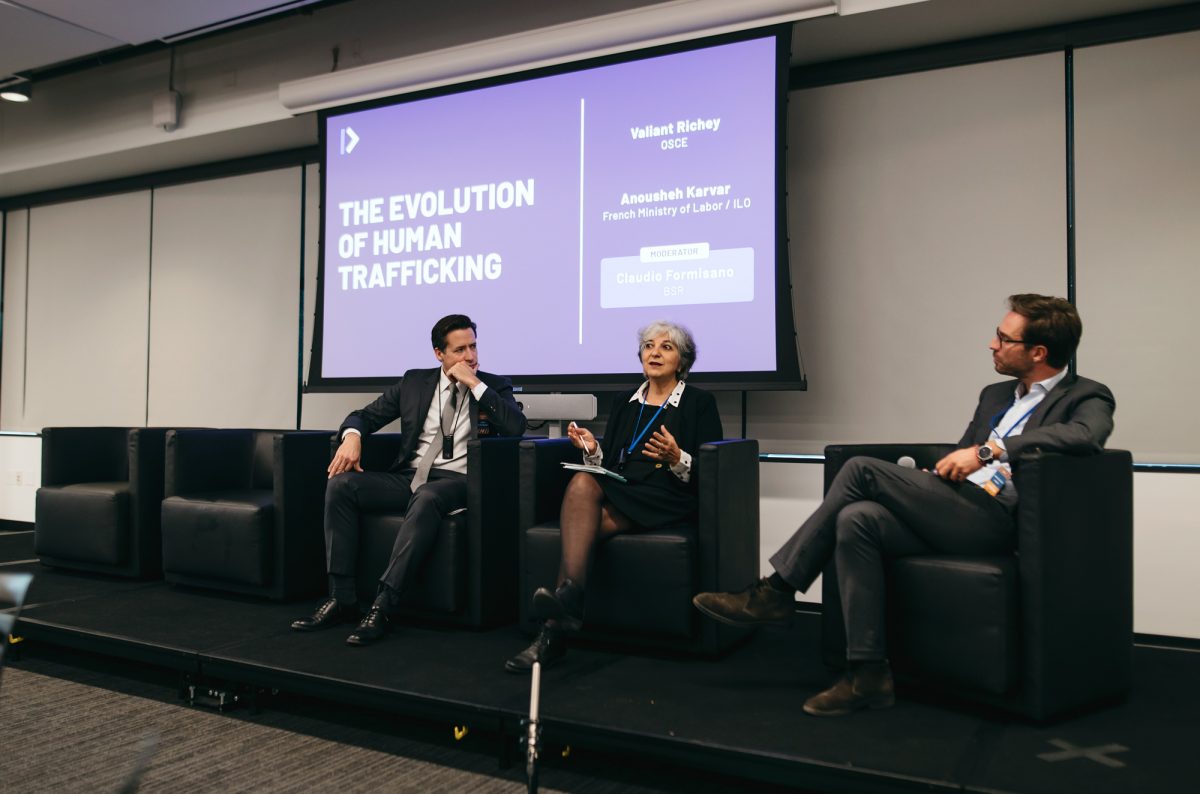Originally published by BSR on October 13, 2022.
On September 27-28, Amazon and BSR hosted the first Tech Against Trafficking Summit in Seattle, Washington, USA. The summit brought together over 160 leaders from the anti-trafficking field, including businesses, survivors and activists, governments, investors, and civil society, to expand opportunities for collaboration and accelerate the impact of innovative technology solutions addressing human trafficking.
Throughout the summit, 10 organizations presented their innovative technology tools that help combat different forms of human trafficking: Polaris, Diginex, Winrock, Stop the Traffik, Pacific Links Foundation, Fundación Pasos Libres, Altana AI, Commit Global, Trilateral Research, and Quizzr. In addition to these organizations, TAT members provided examples of how their companies are supporting anti-trafficking efforts and preventing the misuse of their platforms.

Here are some key takeaways from the summit, which will inform the agenda in leveraging technology to combat human trafficking:
- We need to address the barriers that prevent effective deployment of technology. First, technology development is often siloed, and there is not enough dissemination across actors, which limits impact and leads to duplicated efforts. Second, technology is often developed in the global North, without sufficient awareness of the local context in which the solutions will be deployed. Finally, current financing models don’t address the needs of the field. Technology investments are seen as “overhead” costs for most civil society organizations, and anti-trafficking organizations struggle to find long-term funding to scale their efforts.
- It is critical that technologies are built with a survivor-first and trauma-informed approach. Most technology and anti-trafficking efforts today are led by professionals, not by survivors. Speakers at the summit repeatedly highlighted that technology development efforts should focus primarily on empowering survivors. For example, participatory technology tools that provide agency to impacted individuals have the potential to break existing power dynamics. When using and managing anti-trafficking data, we should not oversee the fact that data is about individuals’ lives and experiences. Similarly, funders should focus on supporting survivor-led organizations.
“How can we make data work for survivors of trafficking? We should leverage technology, but we should also leverage the experience of people who have been in it.”
Suamhirs Piraino-Guzman, Head of Programs, Survivor Alliance
- Data privacy is a concern, but privacy-preserving methods may offer a solution. Data privacy concerns underscored much of the discussion, as privacy often means safety for those impacted by human trafficking. These concerns often limit data sharing across organizations. However, privacy-preserving mechanisms such as synthetic datasets may offer a solution. TAT’s work in previous years has helped make this technology more accessible to the anti-trafficking community.
- Technology is not a silver bullet; it must be complemented with policies and due diligence measures. Although the main theme of the summit was technology and innovation, most of the conversations focused on other factors that are crucial to make technology fully operational. Technology tools alone are not sufficient in addressing the crime; they must be complemented with policies and other due diligence measures for effective deployment and to ensure that technology tools themselves are not contributing to additional harms.
“Partnership has to be the core of everything we do, because of the intersection of this work with so many other important human rights that we need to address.”
Amy Rahe, Managing Director of Strategic Partnerships, Freedom Fund
- Cross-sector collaboration is vital to deploy innovation effectively. Addressing human trafficking and modern slavery requires a variety of skills and expertise, from criminal justice experts to service providers and technologists. Without input from companies, civil society, those with lived experience, and meaningful cooperation with governments, efforts to scale effective technology solutions risk to go overlooked.
“We see the momentum and urgency of doing more to develop and enforce policies and tools to address human trafficking. Now is the time to come together to collaborate on these important issues. There is strength in our collective and respective expertise, wisdom, and work.”
Dr. Kari Johnstone, Acting Director and Principal Deputy Director of the United States Office to Monitor and Combat Trafficking in Persons

To continue facilitating collaboration in the anti-trafficking field, TAT kicked off the third round of the Tech Against Trafficking Accelerator at the summit. Throughout the next 12 months, TAT members and partners will work with Polaris’ Nonechka program and the Issara Institute to help accelerate the scale and impact of their technology solutions.
We’re excited to build on this momentum and continue efforts to collectively tackle modern slavery. All companies and anti-trafficking organizations are invited to contact us to find out how to get involved.

